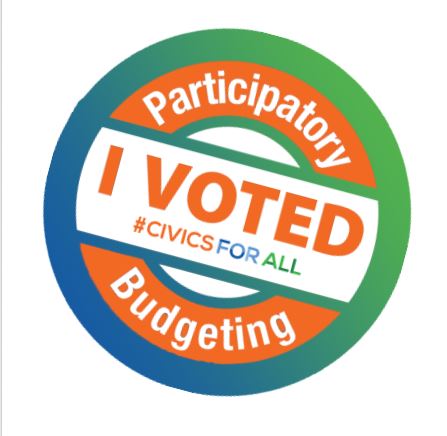Civics for All
Civics for All at Queens Gateway to Health Sciences
At Queens Gateway to Health Sciences, we proudly participate in the NYC DOE’s Civics for All initiative, providing every student with a dynamic Civics education. Our program helps students understand how government works, their rights and responsibilities, and how to actively engage in their communities and democracy.
Students have the opportunity to participate in exciting projects like the MIKVA Project Soapbox Challenge, Participatory Budgeting, the Take Action Project, and more. These hands-on experiences empower students to explore real-world issues, express their views, and make meaningful contributions to their school and community.
Through these programs and our comprehensive curriculum, Queens Gateway students develop the knowledge and skills to become informed, engaged, and responsible citizens prepared to lead both in health sciences and civic life.



Vision Statement
A "civically ready" graduate of Queens Gateway to Health Sciences is an informed and engaged citizen who actively participates in democracy, understands civic processes, and thinks critically about societal issues. Our civic learning is dynamic and interactive—featuring respectful discussions, lively debates, community projects, and real-world problem-solving both inside and outside the classroom. It empowers students through leadership opportunities and fosters collaboration among diverse groups working together on civic initiatives.
We envision Civics for All as a transformative program that cultivates a culture of civic engagement, empowers students to become change-makers, and instills a shared responsibility for our democracy. Our goal is to equip students with the knowledge, skills, and motivation to be lifelong, active citizens capable of addressing the challenges facing their communities and the nation.
Civics for All
Project Soapbox
Project Soapbox
Project Soapbox (SoapboxNYC) empowers Queens Gateway to Health Sciences students to research public‑health and policy issues that affect their schools and communities. Students then craft evidence‑based persuasive speeches and advocate actionable solutions. Through teacher‑guided research, peer feedback, and presentation practice, they strengthen research, persuasive‑writing, and public‑speaking skills while deepening their understanding of community needs. The program culminates in school and community presentations and citywide competitions; many of our students have advanced to the Queens finals of the Mikva Project Soapbox competition, demonstrating the real‑world impact of their work.
Seal of Civic Readiness
The Seal of Civic Readiness is an official credential that recognizes students who demonstrate civic knowledge, skills, and sustained community engagement. At Queens Gateway to Health Sciences we offer the Seal to eligible students who complete a sequence of civics coursework, participate in community‑focused projects (like Project Soapbox), and document meaningful civic action and reflection. Earning the Seal shows readiness to participate responsibly in civic life and strengthens college and career applications by validating students’ practical experience in leadership, advocacy, and community problem‑solving.
Seal of Civic Readiness
Civics for All Additional Programs
Civics for All Additional Programs
Participatory Budgeting
Queens Gateway to Health Sciences is committed to nurturing the next generation of leaders by providing a rigorous academic experience, hands-on learning opportunities, and a vibrant, supportive community. At the heart of our mission is a strong dedication to civic engagement, exemplified by our dynamic Participatory Budgeting Program. This innovative initiative empowers students to take an active role in shaping their school environment by collaboratively deciding how to allocate funds—building essential leadership skills, fostering democratic participation, and inspiring a sense of ownership and pride in their community.
Our participatory budgeting journey began with the formation of a diverse steering committee, selected through democratic voting by the student body. Using insights gathered from a comprehensive schoolwide survey, the committee developed thoughtful proposals that reflected the priorities and ideas of the entire school community. These final proposals were then presented to all students, who engaged in an in-person vote to determine which projects would be funded. The entire process culminated in a spirited celebration during our Civics Week assembly, highlighting the power of student voice and collective action.


























